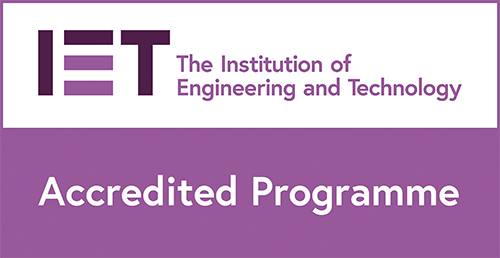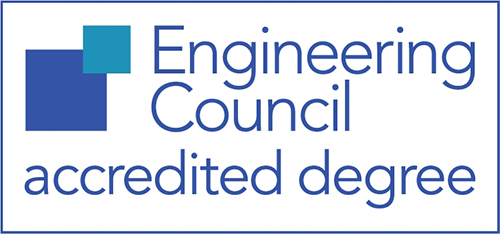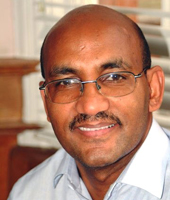Electrical Power Engineering, MSc
Build on a first degree or your prior experience in electrical or electronic engineering and develop new technical skills at an advanced level.
Our Master's in Electrical Power Engineering builds on your existing knowledge and explores how modern power systems are designed and built. Students on this course develop their technical skills and advanced knowledge while specialising in the field of electrical power. You'll also develop your professional, analytical and management skills, and gain insight into the issues that relate to the management of an engineering business.
As part of this course, students undertake a major research project, which can be developed from our impressive industry links. The projects carried out by our students often reflect key interests of the faculty, which include power electronics, renewable energy and alternative energy systems. Take advantage of our world-class and recently refurbished laboratories at our Medway Campus in Kent.
School
Location
Duration
- 1 years full-time
- 2 years part-time
Start month
September; January
Home/international fees 2024/25
£11,000 /£17,450
What you should know about this course
What you will study
About the course team
Our programme team and other contributors to the course are globally recognised specialists in their fields. Colleagues from industry deliver guest lectures each year as well as industry-relevant teaching sessions and seminars.
Come and meet us
We are offering virtual events so that you can still experience how Greenwich could be the right university for you.
Next Open Days
Got a question?
To find out more about our Open Days and Campus Tours or if you need any assistance, please email opendays@gre.ac.uk.
Entry requirements
Applicants should have:
An appropriate degree (2.2 or above) in electrical and/or electronic engineering or an equivalent qualification.
- Students without a first degree but with professional and vocational experience (e.g. incorporated engineer or chartered engineer status) may be considered if they demonstrate the potential to succeed on the course.
For more information, contact courseinfo@greenwich.ac.uk or 020 8331 9000.
You can also read our admissions policy.
Available to overseas students?
Yes
Can I use Prior Learning?
Find out more on our Recognition of Prior Learning pages.
How you will learn
Teaching
You are taught through a combination of interactive lectures, discussions, and tutorials, with the use of appropriate and relevant case-studies. Our taught modules are research-engaged and most have a practical component that relates to the theory you cover in the classroom.
Individual research projects help you learn to adapt and apply specific methodologies to unfamiliar problems.
Class sizes
For specialist modules, our classes are usually limited to 20 students in lab sessions and 40 in lectures. This helps to create familiarity between students and staff and ensure a great learning experience. The modules that run across several courses can have larger classes sizes, which are typically broken down into smaller groups.
Independent learning
Our courses are designed to give you the space for exploratory and independent study. You'll work towards individual and group assignments and undertake the preparation/follow-up work associated with lectures, seminars, integrative assignments and laboratory classes.
We encourage students to take advantage of a range of related extra-curricular opportunities available within the university and elsewhere.
Overall workload
If you are studying full-time, you should expect the workload to be similar to a full-time job. For part-time students, this will reduce in proportion with the number of courses you are studying.
Assessment
Students will be assessed through a variety of methods, such as:
- Classroom presentations, discussions and case-studies
- Critical reviews, looking at new areas of research
- Examinations.
Feedback summary
University policy is to give feedback on assignments within 15 working days of the coursework submission date.
Examination results will be available within 28 days.
Dates and timetables
Each academic year runs from September to June. You can begin the course in September or January.
Full teaching timetables are not usually available until term has started. For any queries, please call 020 8331 9000.
Fees and funding
Your time at university should be enjoyable, rewarding, and free of unnecessary stress. Planning your finances before you come to university can help to reduce financial concerns. We can offer advice on living costs and budgeting, as well as on awards, allowances and loans.
| Full time | Part time | Distance learning | |
|---|---|---|---|
| Home | £11,000 | £1,850 per 30 credits | N/A |
| International | £17,450 | £2,908 per 30 credits | N/A |
Accommodation costs
Whether you choose to live in halls of residence or rent privately, we can help you find what you're looking for. University accommodation is available from £126.35 per person per week (bills included), depending on your location and preferences. If you require more space or facilities, these options are available at a slightly higher cost.
Funding your study
There is a range of financial support options available to support your studies, including the Aspire@Greenwich award for study resources that many full-time students will receive.
EU students may be eligible for a bursary to support their study. View our EU bursary to find out more.
Discover more about grants, student loans, bursaries and scholarships. We also provide advice and support on budgeting, money management and financial hardship.
Careers and placements
What sort of careers do graduates pursue?
Graduates can pursue a wide variety of opportunities exist for electrical power engineers in both the power supply sector and large industrial consumers.
Do you provide employability services?
We have a team dedicated to enhancing student employment outcomes. This includes an Employer Partnerships Manager, who works with companies to provide placement and employment opportunities.
Our team will also help you understand the jobs market, produce effective CVs, and prepare for a graduate job and placement applications in your final year.
Support and advice
Academic skills and study support
The course leader has the overall responsibility for your course and will be your first point of contact.
We also allocate you a personal tutor, who you meet soon after you join the department. Their role is to support your personal and academic development and act as your point of contact for queries or problems.
Support from the department
We help new students over the first few weeks with our faculty and department induction. This covers the first week of term 1 (September) and term 2 (January). We'll also help you discover the academic and social landscape at Medway Campus.
Mode of study
Select from the dropdown below.
| Course level | |
| UCAS code | |
| Duration | |
| Location |








